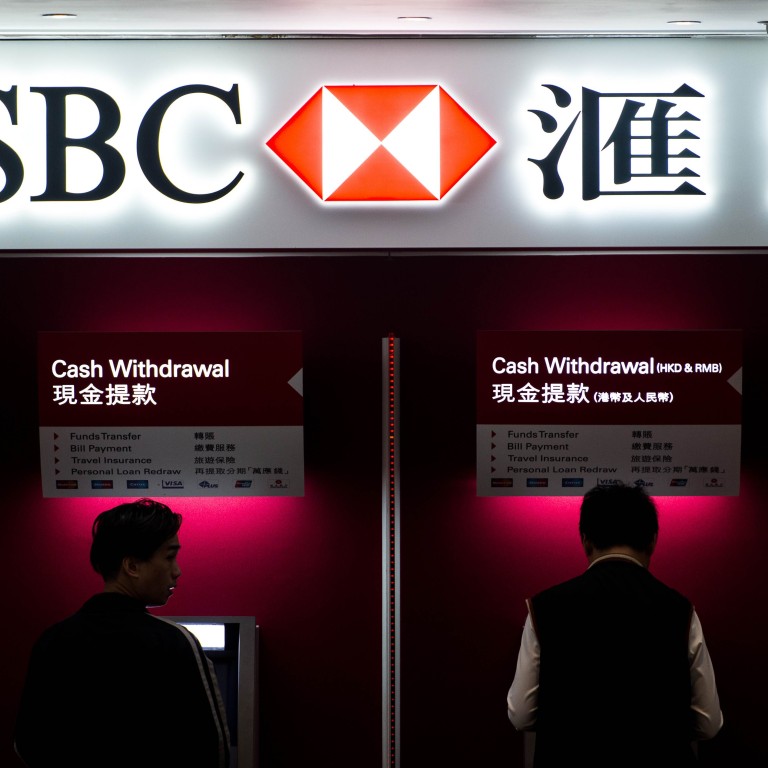
HSBC apologises for UnionPay ATM-card fiasco in Hong Kong
Ever since HSBC started sending out its new ATM cards with an embedded chip, internet chat rooms and our own organ's letters page have been humming with disgruntled HSBC customer complaints.
Ever since HSBC started sending out its new ATM cards with an embedded chip, internet chat rooms and our own organ's letters page have been humming with disgruntled HSBC customer complaints. The problem is that customers have been unable use the card to withdraw cash from their accounts in many parts of the world, aside from the mainland.
approached HSBC to ascertain what progress they were making in finding a solution to the current mess. They responded by saying:
"We apologise to the customers who have been inconvenienced by the new arrangement. Customer feedback is important to us. We are working on improving the ATM access in markets including those mentioned by your readers and we hope more details can be provided soon. Similar to most banks in Hong Kong, UnionPay was chosen as the network provider for ATM chip cards. A majority of our customers increasingly uses cash withdrawal services in China and Asia. We encourage customers who have encountered problems in markets covered by UnionPay's network to contact us so we can investigate the cases individually. In the meantime, HSBC customers can link their bank accounts to their Visa/MasterCard credit card to use the ATM services of the PLUS/Cirrus network."
HSBC's problems started when it issued the new cards with only one global payment network - UnionPay. Previously it used the Plus network which can be used more widely than UnionPay. Banks issuing ATM cards in Hong Kong were instructed by the Hong Kong Monetary Authority to adopt chip-based ATM cards to increase the security of the card. In an earlier story by the , an HSBC spokesman said: "For security reasons, we are allowed to link to only one pay system. We use UnionPay."
A Hong Kong Monetary Authority spokesman said it did not insist on this requirement and when asked to elaborate HSBC responded: "UnionPay was chosen as the sole ATM network provider for our chip cards as part of an agreement the details of which are confidential."
Chip-embedded ATM cards issued by other banks in Hong Kong appear to have only one international payment network on their cards. But they appear to have avoided the mess that HSBC has ended up in by giving its customers a choice of cards.
Standard Chartered, for example, offers a card connected to the Jetco payment network for use in Hong Kong and Cirrus for international use. It also has a card with both Jetco and UnionPay. This may well be the path which HSBC will have to adopt. To paraphrase Winston Churchill: "You can always count on them to do the right thing, having tried everything else."
We were interested to read in that Vikram Malhotra of Credit Suisse is an avid golfer. Being a golfer in investment banking circles is not unusual, it's almost obligatory since a good deal of client work occurs on the golf course. But he's unusually good at it with a handicap of three. But, canny banker that he is, he doesn't let his competitive streak get in the way of business. "I make sure I play on the same side as my clients," he says.
The chief executive, CY Leung, resorted to taking pro-establishment lawmakers to dinner to win their support for the expansion of landfills. (Hopefully the exercise fell within government guidelines on entertaining.) But it all seems to have been in vain since the likes of Regina Ip Lau Suk-yee told him that attempting to force the issue through the Legislative Council would be "political suicide". Ip's colleague, Michael Tien Puk-sun, added his two cents, saying that the government would need to sweeten the deal with electricity subsidies.
The Environmental Protection Department would no doubt be delighted to get the expansion through Legco. But it would be embarrassed by the Tien sweetener, since it is trying to persuade everyone to use less, not more electricity.
We recently wrote a piece headlined "The unimportance of sleep" about a poll conducted at the 2013 Global Leadership Summit which was organised by the London Business School and not, as we said, the London School of Economics.

